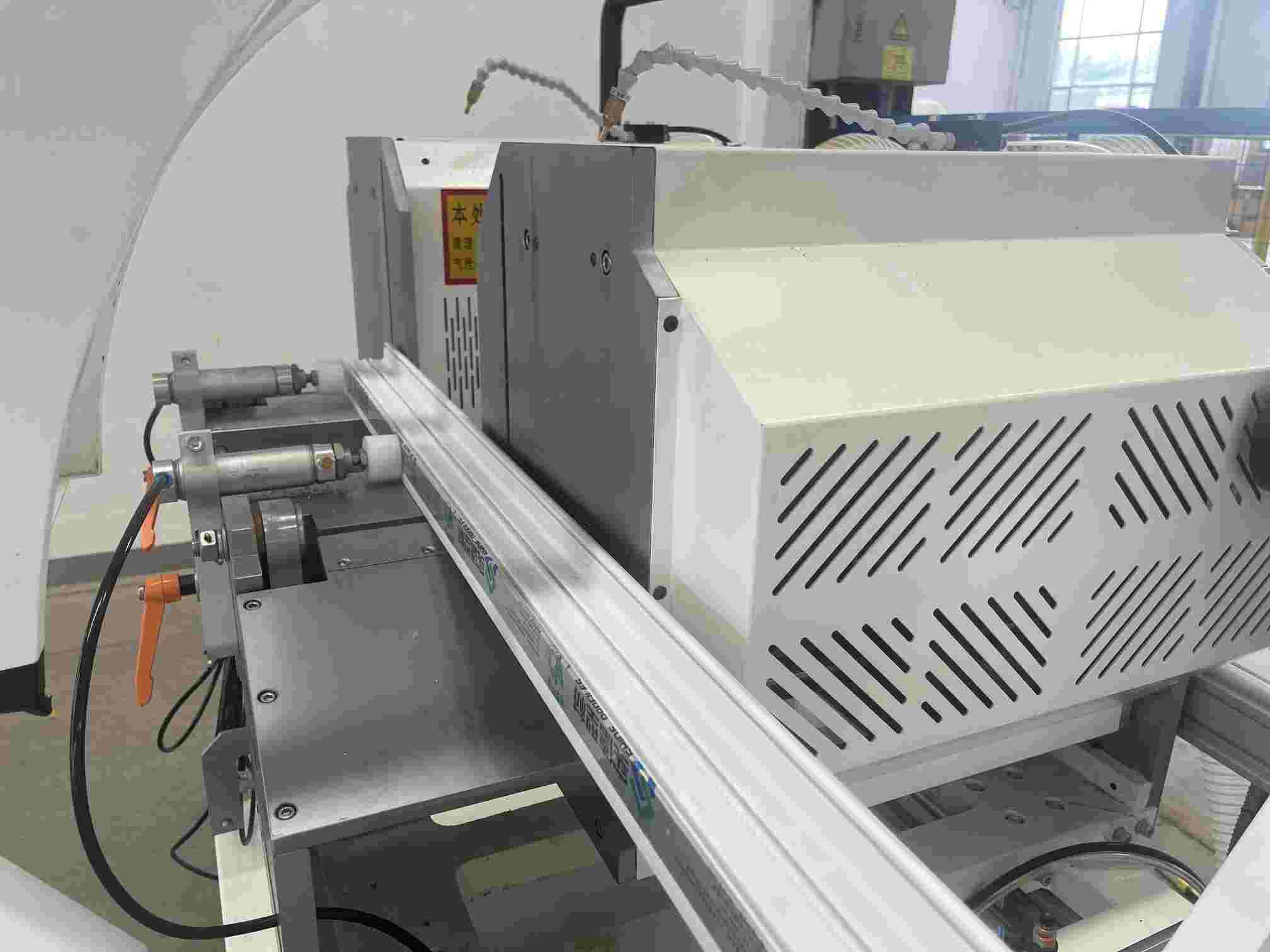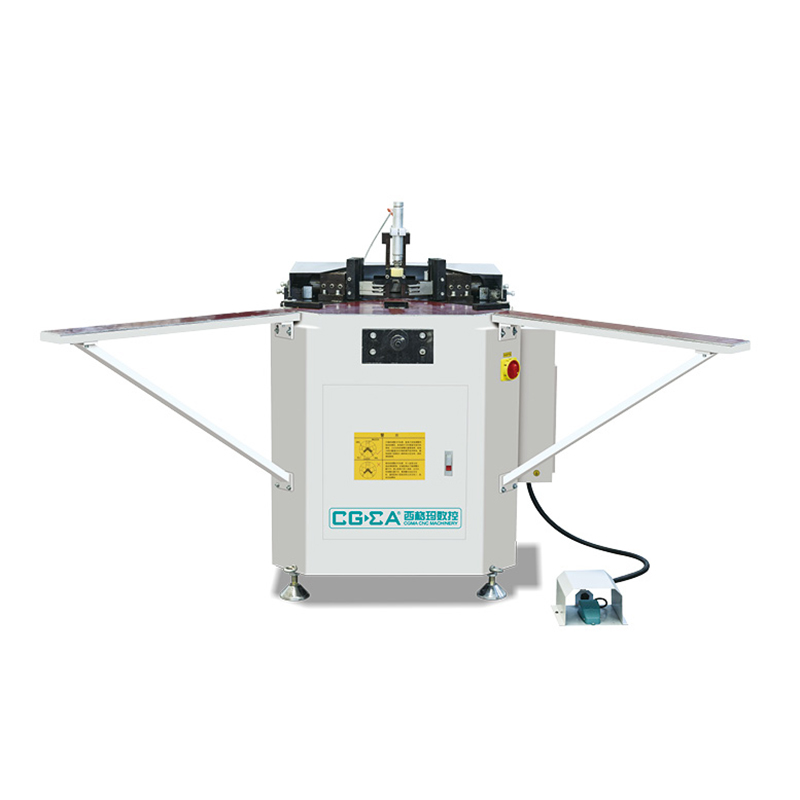N estled in the shadow of the hills at the head of the Rhondda Fawr valley in South Wales is the village of Treherbert. The last stop on the line north out of Cardiff, the former coal-mining town is a quiet, enclosed place, the lines of terraced houses fostering a strong community spirit.
And at the heart of that community, barely a stone’s throw from the train station, is the Everest factory. Everest has been creating windows and doors at this site for 45 years – for the past five of them under the watchful eye of site manager Doug Ferry. Upvc Machine Second Hand

Originally from Glasgow, Doug is a calm presence on the factory floor – but is filled with a clear passion for his work. He is proud of what they are doing at Treherbert; and as he shows us around the site, it’s clear that the same enthusiasm filters down through every one of the workers here.
“We employ 90 or so people here,” he says. “Seventy-five on the shop floor and another 15 in management and maintenance.”
It’s a tight ship and, thanks to changes implemented by Doug, it runs with smooth efficiency. Every one of those 90 workers knows what’s expected of them, and each goes about their job with quiet confidence.
The Everest site at Treherbert is actually made up of two factories: one for the uPVC products, the other for aluminium. But although both require different manufacturing processes – and a different skill set from those making them – the principle, as Doug explains, remains the same.
“Every window and door we make here is bespoke,” he says. “Each individual product is 100 per cent made to measure. And that, as you can imagine, means everything takes a little more work – but it also means that we’re not just knocking out standard stuff. Every piece is effectively unique.”
With a main range of more than 600 designs – including at least 17 types of bi-fold doors – Doug confesses that from day to day there can be a huge variety of products to be made – and so he has introduced a system at Treherbert to maximise efficiency while ensuring more rigorous quality-control checks than ever implemented before.
This has meant investing in new machinery – pride of place goes to a huge piece of kit he describes as “the heart of the factory”.
At a touch over half a million pounds, the state-of-the-art Cutting & Machining Centre doesn’t come cheap – but it is an investment that is paying dividends. Uncut 6m lengths of uPVC frame enter the factory already batched up according to order, and are then fed into the Cutting & Machining Centre, where they are cut to the nearest millimetre, have various holes and grooves for locks added, and are generally prepared for every subsequent stage in the manufacturing process.
The machine can not only process 25 windows at a time – cutting and drilling with pinpoint accuracy – but also optimise its cuts to minimise wastage – meaning that 99 per cent of each bar is used.
Each piece of frame has a label attached, containing all the information the workers at the factory need to know to create the finished product – from the unique customer reference number to its length, colour and even how the ends are to be cut.
Although a number of other major machines are used at Treherbert – notably a £40,000 four-headed welder that Doug bought last year and a £250,000 smooth welder – the rise of automation has not so much replaced human effort, as simply rendered the manufacturing process more efficient.
One of only 10 in the UK, the smooth welder not only ensures a near invisible join between the corners of each frame, but actually ensures a stronger fit by reshaping the material like a zip fastener.
The shop floor here is a marriage of modern automation and oldfashioned craftsmanship. Although the cutting and welding is carried out by machinery, the “furniture” – security clips, holes for stays to open and close the windows, locks and so on – is fitted by hand.
This is where the labels on each section of frame come into their own. Workers at the factory take each piece and – with the kind of smooth, confident efficiency that comes only with years of experience – drill, fit and screw their pieces in. On another table, the sashes are hung in each frame – again, the glass is entirely bespoke, ordered according to customers’ specifications.
As we watch, a pair of men work as a team, fitting the glass in with practised ease before wrapping the completed windows in polythene, ready for final inspection. Eventually they are loaded on to one of two lorries that wind their way back down the valley each day, heading for either Everest’s distribution centre in Rugby or the installation centre in the New Forest.
Doug explains that although the majority of their orders are for “standard”-size windows, changing fashions mean more people are ordering bigger picture windows – some as large as three or four metres wide – as well as expansive bi-fold doors.
On the second of the Treherbert factory floors the company has the facilities to create its own bay windows and bow roofs – each taking a full two days from start to finish and created almost entirely by hand, with a worker manually moulding the leading around the frame.
It is this combination of human knowledge and automation that Doug feels is the key to combining efficiency and quality at Treherbert. His team are producing around 700 finished items a week from this site – from tiny square windows to vast 6m bi-fold doors – and morale is high.
“We’ve got a very skilled workforce here,” he says. “All the guys are multi-skilled – that means I can move people around depending on the orders we get.”
Doug reckons that 90 per cent of his workforce lives within five miles of the site – and the community spirit that defines Treherbert village can be felt in the factory too. “They’re all local people,” he says. “Everyone knows each other, many have grown up together – and a lot of the guys have been here a long time.
“And although the quality of the new machines has taken us to a new level of production, the craftsmanship of the workforce is essential to our success. Ultimately, as the factory improves, we can invest more and everyone’s better off.”
Everest has been manufacturing at Treherbert since 1972, when the firm sent Englishman Chris Jones from Cheshunt to the Rhondda to open its new factory. At first the company manufactured only aluminium secondary glazing on the site, but within a few years it expanded to produce aluminium sealed units.
In the late 1980s, as Everest turned its focus to the uPVC market, Treherbert adapted its shop floor accordingly – although a portion of the manufacturing at the site is still dedicated to producing aluminium-framed windows.
In recent years, increased automation has seen Treherbert expand its production in both quality and quantity – but the “family feel” of the place has endured. With some 90 local people employed on site, it not only remains a jewel in Everest’s crown, but a vital part of the local community too.

Automatic Upvc Windows Production Line For more information, visit everest.co.uk